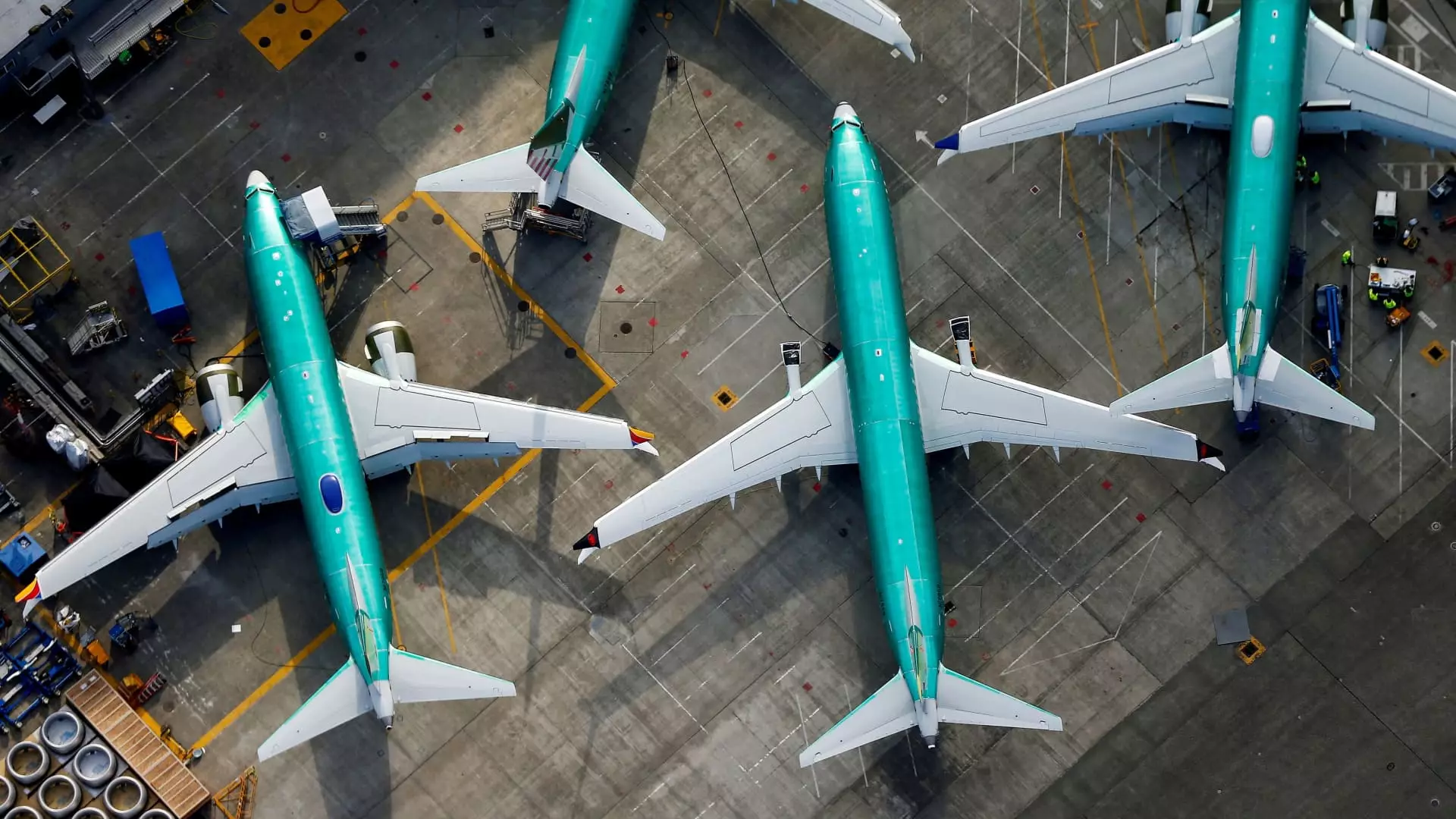Boeing, the leading aircraft manufacturer, faced a setback in January as its aircraft orders and deliveries dipped due to the aftermath of a midflight fuselage panel blowout on one of its 737 Max 9s. This unfortunate incident overshadowed the company’s strong finish in 2023. Despite this hurdle, Boeing managed to hand over 27 planes last month; however, this was its lowest tally since September and a significant decrease from the 67 deliveries in December. The company also sold three Boeing 737 Max planes but experienced three cancellations. Although these figures were in line with some analysts’ expectations, the setback raises concerns about Boeing’s stability moving forward.
In contrast, Boeing’s main competitor, Airbus, delivered 30 planes in January, surpassing Boeing’s numbers. This development emphasizes the challenges that Boeing is currently facing and highlights the need for the company to regain its footing amidst the fallout from the fuselage blowout incident.
The fuselage panel blowout incident has prompted Boeing executives to take urgent measures to restore trust and confidence among airline customers, investors, and regulators. The incident occurred on January 5th, when a door plug blew out on an Alaska Airlines flight shortly after takeoff from Portland, Oregon. Although there were no serious injuries, the violent detachment caused significant damage, including ripped-off headrests and a gaping hole in the 26th row. The National Transportation Safety Board’s preliminary report indicated that bolts missing from the fuselage piece caused the incident. These bolts had been removed and reattached at Boeing’s 737 Max factory in Renton, Washington, suggesting potential quality control issues.
Boeing CEO Dave Calhoun has pledged to thoroughly review the company’s manufacturing processes at its facilities. This commitment aims to identify any flaws in the production process that may have contributed to the incident. Boeing’s production was halted by the Federal Aviation Administration (FAA) until satisfactory resolutions to the quality control issues are found. Calhoun expressed support for this pause, acknowledging its benefit in allowing Boeing to take the necessary time and precautions to rectify any existing problems.
The FAA is currently conducting an audit of Boeing’s production facilities, which includes about two-dozen inspectors stationed at the Renton factory and in Wichita, Kansas, where Spirit Aerosystems manufactures the 737 Max fuselages. The agency’s administrator, Mike Whitaker, stated that the FAA will continue performing direct inspections to closely monitor the work being done to address the issues at hand. This rigorous audit demonstrates the FAA’s commitment to ensuring safety and quality control in Boeing’s operations.
Due to the ongoing audit and the need for thorough inspections, Boeing has been forced to periodically pause its production line. CFO Brian West confirmed that the company expects the production rate to remain steady at 38 Max planes per month in the second half of the year. This adjustment will ensure that Boeing benefits from the ongoing audit and its own inspection protocols, albeit at a slower pace.
Boeing’s setback in January and the ongoing fallout from the 737 Max fuselage blowout incident highlight the challenges the company faces in rebuilding trust, restoring confidence, and resolving the underlying issues affecting its operations. The competition from Airbus, which outperformed Boeing in January, adds further pressure for Boeing to regain its position as a leading aircraft manufacturer. As FAA Administrator Whitaker travels to the Renton plant for assessment this week, the aviation industry eagerly anticipates Boeing’s response and actions to regain its reputation and ensure the safety and reliability of its aircraft.


Leave a Reply